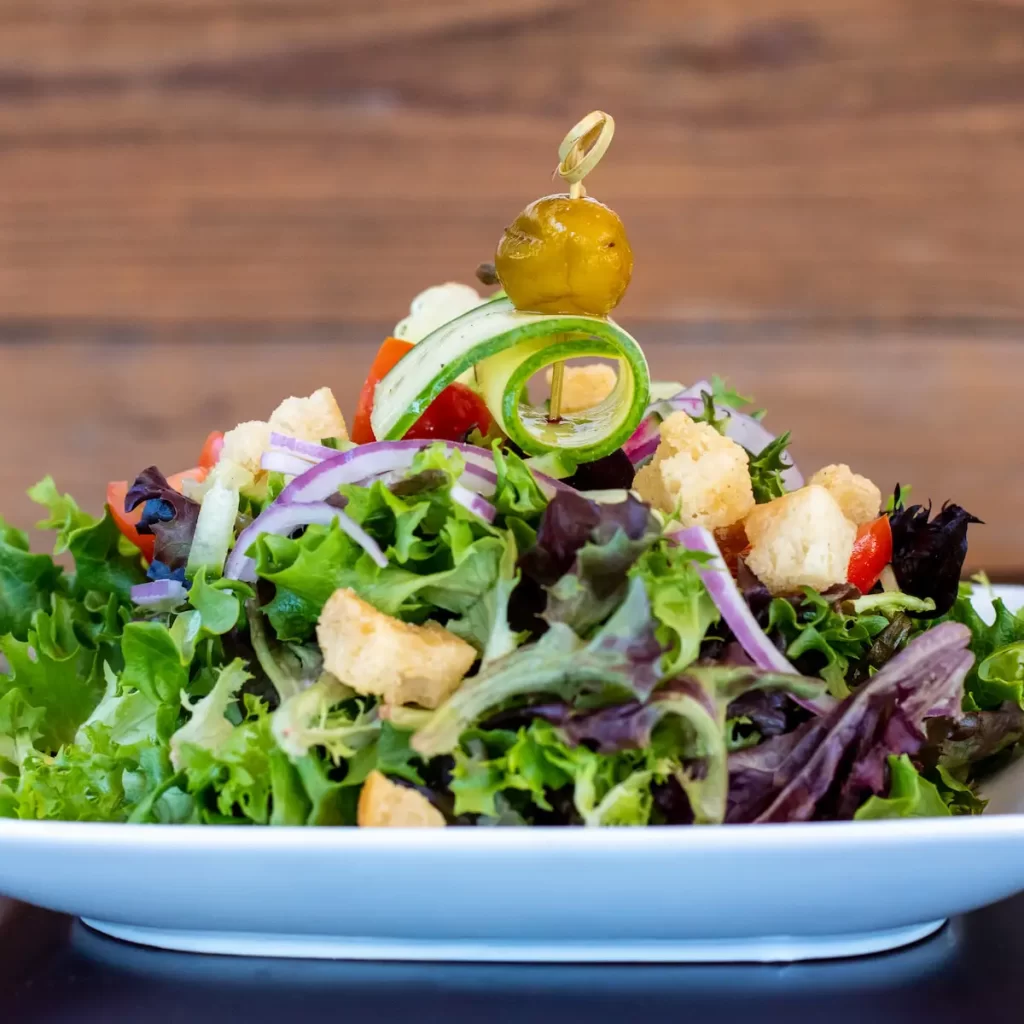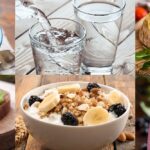Endurance athletes require optimal nutrition to fuel their training and support their performance. While many athletes turn to animal-based products to meet their nutritional needs, an increasing number are discovering the benefits of a plant-based diet.
A plant-based diet, rich in fruits, vegetables, whole grains, and legumes, can provide all the nutrients an endurance athlete needs while also offering unique benefits for athletic performance and overall health. From improved recovery to enhanced endurance, a plant-based diet is becoming an increasingly popular choice for athletes looking to take their performance to the next level.
Key Takeaways:
- A plant-based diet can provide all the nutrients an endurance athlete needs to fuel their training and support their performance.
- Plant-based nutrition offers unique benefits for athletic performance and overall health.
- A plant-based diet can be a valuable tool for athletes looking to improve recovery, enhance endurance, and optimize overall performance.
- By incorporating a variety of plant-based protein sources into their meals and snacks, athletes can support muscle recovery and growth.
- Supplementation may be necessary for some plant-based athletes to bridge nutrient gaps and support performance.
Understanding the Plant-Based Diet
A plant-based diet is centered around eating whole, unprocessed foods from plants, such as vegetables, fruits, whole grains, legumes, nuts, and seeds. By focusing on plant-based foods, athletes can consume a diet filled with essential nutrients to fuel their bodies and support optimal performance.
Plant-Based Protein for Athletes
Protein is an important nutrient for athletes, as it helps repair and build muscle tissue. Contrary to popular belief, it is possible to get enough protein on a plant-based diet. Some plant-based protein sources include:
- Beans and legumes
- Nuts and seeds
- Whole grains, such as quinoa and brown rice
- Soy products, such as tofu and tempeh
Including a variety of these protein sources in meals and snacks throughout the day can help athletes meet their protein needs.
Plant-Based Meal Plan for Athletes
Creating a balanced meal plan is essential for athletes looking to optimize their performance on a plant-based diet. Athletes should aim to consume a variety of whole, plant-based foods at each meal, including:
- Carbohydrates, such as fruits, vegetables, and whole grains
- Proteins, such as beans, legumes, and nuts
- Fats, such as avocado, nuts, and seeds
Staying properly hydrated is also critical for athletes to perform at their best. Incorporating ample amounts of water and other hydrating beverages, such as coconut water, can help athletes maintain hydration levels during training and competition.
Plant-Based Nutrition for Performance
Switching to a plant-based diet can offer numerous benefits for athletic performance and overall health. Plant-based foods tend to be high in fiber, which can support healthy digestion and reduce inflammation. Additionally, plant-based diets are often lower in saturated fat and cholesterol, which can help improve cardiovascular health and reduce the risk of chronic diseases.
Because plant-based diets tend to be high in carbohydrates, they provide an excellent source of fuel for endurance athletes. Carbohydrates are essential for powering through workouts and can help optimize performance during competitions.
The Benefits of a Plant-Based Diet for Endurance Athletes
Endurance athletes, whether they are runners or participate in other lengthy races, require optimal nutrition to support their performance. Many athletes are discovering that a plant-based diet can provide the necessary nutrition to fuel their training and improve their overall health.
A vegan diet for runners, or a vegetarian athlete’s diet, can provide numerous benefits. It can improve cardiovascular health, reduce inflammation, and lower the risk of chronic diseases.
Research has shown that endurance athletes who follow a vegan or vegetarian diet can have comparable or better performance results than those who consume animal products. A vegan endurance diet can improve an athlete’s time to exhaustion and reduce muscle damage during training.
Enhanced Recovery
Plant-based nutrition can enhance recovery time for endurance athletes. A diet rich in fruits and vegetables can provide the antioxidants and anti-inflammatory compounds necessary to reduce inflammation and prevent muscle damage.
Consuming plant-based protein sources such as beans, lentils, and tofu can also aid in recovery. These protein sources are rich in essential amino acids that promote muscle growth and repair.
Improved Endurance
Endurance athletes require significant amounts of energy to fuel their training sessions and races. A high-carbohydrate, plant-based diet can provide the necessary energy to support endurance performance.
Plant-based carbohydrate sources such as sweet potatoes, quinoa, and brown rice can provide the energy needed to sustain endurance exercise. These foods are also rich in fiber, which can improve gut health and reduce the risk of gastrointestinal distress during races or training.
Additional Benefits
In addition to improving recovery and endurance, a plant-based diet for endurance athletes can provide numerous other benefits. It can reduce inflammation, improve cardiovascular health, and lower the risk of chronic diseases such as type 2 diabetes and cancer.
A diet rich in plant-based foods also provides the necessary vitamins and minerals needed for optimal health, including vitamin C, vitamin E, and iron.
Plant-Based Nutrition for Endurance Training
Endurance athletes require a diet rich in carbohydrates to fuel their training and optimize performance. A plant-based diet can provide the necessary energy and nutrients for endurance training with a focus on high-carbohydrate plant-based foods.
Plant-powered endurance nutrition can help athletes maintain optimal blood glucose levels, improve glycogen storage, and delay fatigue during training and competitions.
| High-Carbohydrate Plant-Based Foods | Protein Content (g) | Carbohydrate Content (g) |
|---|---|---|
| Brown rice (1 cup) | 4.5 | 45 |
| Sweet potato (1 medium) | 2.2 | 27 |
| Quinoa (1 cup) | 8 | 39 |
| Bananas (1 medium) | 1.3 | 27 |
| Oats (1 cup cooked) | 6 | 28 |
It’s important to consume a variety of plant-based protein sources such as legumes, tofu, tempeh, nuts, and seeds to support muscle recovery and growth. These protein sources can also provide important micronutrients such as iron, calcium, and zinc.
A plant-based sports nutrition plan can include a mix of carbohydrate and protein-rich meals and snacks throughout the day to maintain consistent energy levels and support recovery.
Sample Daily Meal Plan:
- Breakfast: Oatmeal with banana and almond butter
- Snack: Apple slices with peanut butter
- Lunch: Lentil vegetable stir fry with brown rice
- Snack: Trail mix with dried fruit and mixed nuts
- Dinner: Tofu and vegetable curry with quinoa
- Pre-Workout Snack: Toast with avocado and tomato slices
- Post-Workout Snack: Smoothie with berries, spinach, and pea protein
Plant-based nutrition for endurance athletes can provide the necessary energy and nutrients for optimal performance and recovery. Consult with a registered dietitian to develop a personalized nutrition plan to meet individual needs.
Plant-Based Protein Sources for Endurance Athletes
Endurance athletes require nutrients that support their training and help with muscle recovery. Plant-based protein sources are a great option for athletes on a plant-based diet. These protein sources not only provide protein but are also rich in other essential nutrients that are beneficial for athletic performance and overall health.
Plant-Based Protein Sources
There are several plant-based protein sources that are ideal for endurance athletes. Here are some examples:
- Lentils: Lentils are a great source of plant-based protein, with around 18 grams of protein per cup. They are also rich in iron and fiber, which help with muscle recovery and maintaining energy levels during long-distance runs.
- Chickpeas: Chickpeas contain approximately 15 grams of protein per cup and are also rich in fiber and complex carbohydrates. These nutrients aid in fueling endurance sports and optimizing performance.
- Quinoa: Quinoa is a complete protein, meaning it contains all essential amino acids. It provides around 8 grams of protein per cup and is also rich in iron, magnesium, and zinc.
- Tempeh: Tempeh is an excellent source of protein, with approximately 31 grams of protein per cup. It also contains calcium and iron, which are critical for maintaining healthy bones and muscles.
The Benefits of Plant-Based Protein for Endurance Athletes
Consuming plant-based protein sources offer several benefits to endurance athletes, including:
- Fueling Endurance Sports: Plant-based proteins are rich in complex carbohydrates, which are the primary fuel source for endurance sports. Consuming these proteins before and after training can help maintain energy levels and enhance performance.
- Better Digestion: Plant-based proteins are easy to digest, making it easier for athletes to consume them before, during, and after training without gastrointestinal discomfort.
- Reduced Inflammation: Many plant-based protein sources are also rich in anti-inflammatory agents. Consuming these proteins can help reduce inflammation in the body and aid in muscle recovery.
How to Incorporate Plant-Based Proteins into Meals and Snacks
It’s essential to incorporate plant-based protein sources into meals and snacks to meet the nutritional needs of endurance athletes. Here are some examples:
| Meal/Snack | Plant-Based Protein Source |
|---|---|
| Breakfast | Oatmeal with almond milk and chia seeds |
| Snack | Roasted chickpeas |
| Lunch | Lentil soup with whole-grain bread |
| Snack | Apple slices with almond butter |
| Dinner | Tempeh stir-fry with vegetables and brown rice |
In conclusion, plant-based protein sources are a great option for endurance athletes. Consuming these proteins provides the necessary energy to fuel endurance sports, aids in muscle recovery, and promotes better digestion. Including them in a well-balanced meal plan can help optimize athletic performance and overall health.
Optimizing Nutrient Intake on a Plant-Based Diet
Endurance athletes following a plant-based diet can easily meet their nutrient needs by consuming a variety of whole plant-based foods. However, there are some key nutrients that require extra attention to ensure optimal performance and overall health. This section will provide tips and strategies for athletes to optimize their nutrient intake on a plant-based diet.
Key Nutrients of Concern
Endurance athletes following a plant-based diet need to pay special attention to the following nutrients:
- Protein: Plant-based athletes should aim for a daily protein intake of around 1.2-1.7 grams per kilogram of body weight to support muscle growth and recovery.
- Iron: Plant-based sources of iron are less easily absorbed by the body, so athletes should consume iron-rich foods such as dark leafy greens, legumes, and fortified cereals regularly.
- Calcium: Plant-based sources of calcium include fortified non-dairy milks, tofu, leafy greens, and almonds. Athletes should consume 1000-1300 milligrams per day to support bone health.
- Vitamin B12: This vitamin is only found naturally in animal products, so plant-based athletes should take a supplement or consume fortified foods to meet their needs.
Plant-Based Food Choices for Optimal Nutrition
Endurance athletes can optimize their nutrient intake by incorporating the following plant-based foods into their meals:
- Darker leafy greens: These are excellent sources of iron, calcium, and other nutrients. Incorporate them into salads, smoothies, or as a side dish.
- Legumes: These are a great source of protein, iron, and other micronutrients. Add them to soups, stews, or salads.
- Whole grains: These are high in carbohydrates and fiber, making them a great choice for endurance athletes. Choose whole grain pasta, bread, rice, and quinoa.
- Nuts and seeds: These are high in healthy fats, protein, and other nutrients. Add them to salads, smoothies, or as a snack.
- Fortified non-dairy milks and cereals: These are a good source of calcium, vitamin D, and other micronutrients. Use them in place of dairy milk or incorporate them into your breakfast routine.
Vegan Nutrition for Endurance Athletes
Endurance athletes following a vegan diet should pay extra attention to their protein and vitamin B12 intake. Plant-based protein sources include tofu, tempeh, lentils, chickpeas, and quinoa. Vegan athletes can meet their B12 needs by consuming fortified foods such as nutritional yeast, plant-based milks, and meat alternatives, or by taking a supplement.
Vegetarian Diet for Endurance Training
Vegetarian athletes have a range of plant-based protein sources available to them, including dairy products, eggs, and Greek yogurt. They can also consume fortified non-dairy milks, tofu, tempeh, lentils, chickpeas, and quinoa as plant-based protein sources. Vegetarian athletes should also pay attention to their B12 intake and consume fortified foods or take a supplement.
Sample Plant-Based Meal Plan for Endurance Athletes
Following a plant-based diet can provide all the necessary nutrients to fuel an endurance athlete’s training and recovery. Here is a sample meal plan to guide athletes on their journey:
| Meal | Food | Portion Size | Calories | Protein (g) | Carbs (g) | Fat (g) |
|---|---|---|---|---|---|---|
| Breakfast | Oatmeal | 1 cup | 150 | 6 | 27 | 2 |
| Banana | 1 medium | 105 | 1.3 | 27 | 0.4 | |
| Almond butter | 1 tbsp | 98 | 3 | 3 | 9 | |
| Soy milk | 1 cup | 80 | 8 | 4 | 4 | |
| Morning Snack | Fruit smoothie | 1 serving | 200 | 5 | 40 | 3 |
| Protein powder | 1 scoop | 120 | 24 | 3 | 1 | |
| Lunch | Quinoa bowl | 1 serving | 450 | 16 | 65 | 16 |
| Kale | 1 cup | 33 | 2.2 | 6 | 0.5 | |
| Sweet potato | 1 medium | 103 | 2.3 | 24 | 0.2 | |
| Afternoon Snack | Nuts and dried fruit | 1 serving | 220 | 5 | 25 | 13 |
| Dinner | Veggie stir-fry | 1 serving | 400 | 17 | 48 | 16 |
| Quinoa | 1/2 cup | 111 | 4 | 20 | 1.8 | |
| Tofu | 3 oz | 55 | 7 | 1 | 2.5 | |
| Edamame | 1/2 cup | 140 | 12 | 10 | 6 | |
| Evening Snack | Apple slices | 1 medium | 95 | 0.5 | 25 | 0.3 |
| Almond butter | 1 tbsp | 98 | 3 | 3 | 9 |
This sample meal plan provides a total of approximately 1,902 calories, 86 grams of protein, 293 grams of carbs, and 84 grams of fat. Endurance athletes should adjust their calorie intake based on their individual needs and training volume.
Remember, proper nutrition is key for peak athletic performance. With a plant-based diet, athletes can get all the nutrients they need to excel in their sport and maintain optimal health.
Recipes and Snack Ideas for Plant-Based Endurance Athletes
Endurance athletes require nutrient-dense meals and snacks to support their training and recovery. Here are some plant-based recipe and snack ideas to help fuel performance:
Breakfast:
- Oatmeal with almond milk, chia seeds, chopped nuts, and sliced bananas
- Smoothie bowl with frozen berries, spinach, almond butter, and vegan protein powder
- Avocado toast on whole-grain bread topped with sliced tomatoes and hemp seeds
Lunch:
- Grilled vegetable wrap with hummus and quinoa
- Chickpea salad sandwich with whole-grain bread and mixed greens
- Quinoa bowl with roasted sweet potatoes, black beans, and avocado
Dinner:
- Grilled tofu kebabs with mixed vegetables and quinoa
- Mushroom and lentil bolognese served over whole-grain pasta
- Stir-fry with tofu, brown rice, and mixed vegetables
Snacks:
- Energy balls made with dates, nuts, and vegan protein powder
- Apple slices with almond butter and chia seeds
- Rice cakes topped with hummus and sliced cucumber
These plant-based recipes and snack ideas are just a starting point. Get creative and experiment with different ingredients to find what works best for you. Remember, a well-planned plant-based diet can provide all the nutrients necessary for optimal performance.
Supplements for Plant-Based Endurance Athletes
While a well-planned plant-based diet can provide all the necessary nutrients for endurance athletes, some may opt for supplements to enhance their performance or address specific deficiencies. Here are some key supplements to consider:
| Supplement | Description | Benefits for Endurance Athletes |
|---|---|---|
| B12 | A vitamin essential for nerve function and the production of red blood cells. | Many plant-based athletes may be deficient in B12, which is primarily found in animal products. Supplementing can help prevent anemia and support nervous system health. |
| Iron | A mineral necessary for the production of hemoglobin in red blood cells, which carries oxygen to the muscles. | Plant-based athletes may require more iron than their omnivorous counterparts, as plant-based sources of iron are not as easily absorbed. Supplementing can help prevent anemia and support endurance performance. |
| Vitamin D | A vitamin important for bone health, immune function, and muscle function. | Vitamin D deficiency is common, especially in northern latitudes with limited sun exposure. Supplementing can support immune function, bone health, and muscle function for endurance training. |
| Creatine | A naturally occurring compound found in muscle cells that helps produce energy during high-intensity exercise. | Creatine supplementation may improve performance during short, intense bursts of exercise, such as sprints or weightlifting. It may also support muscle recovery after prolonged endurance training. |
It’s important to note that supplements are not necessary for all plant-based endurance athletes and should be used judiciously and under the guidance of a healthcare professional or registered dietitian. Additionally, supplements should not be relied upon to replace a well-rounded plant-based diet.
Conclusion
In conclusion, optimizing performance on a plant-based diet is not only possible but beneficial for endurance athletes. A well-planned plant-based meal plan can provide all the necessary nutrients for peak performance and improved recovery. By embracing vegan nutrition for endurance athletes, athletes can fuel their endurance with the power of plants.
It is essential to remember that everyone’s nutritional needs are unique. Therefore, it is crucial to consult a registered dietitian or nutritionist to tailor a meal plan that meets individual needs and goals.
Plant-Based Nutrition for Athletes
Plant-based nutrition for athletes is a viable option that can lead to improved athletic performance and overall health. Fueling endurance with a plant-based diet offers an array of benefits, including reducing inflammation, promoting muscle recovery, and improving digestion.
Vegan Nutrition for Endurance Athletes
Vegan nutrition for endurance athletes provides all the necessary nutrients to excel in training and competitions. Whole plant foods offer a multitude of benefits, including providing antioxidants, fiber, and micronutrients that support optimal health and performance.
Fueling Endurance with a Plant-Based Diet
Endurance athletes can effectively fuel their performance by consuming a plant-based diet that includes a variety of nutrient-dense whole foods. Incorporating a balanced mix of complex carbohydrates, plant-based protein sources, and healthy fats will help athletes meet their caloric needs for optimal performance.
FAQ
What is a plant-based diet?
A plant-based diet is a dietary approach that focuses on consuming foods derived from plants, such as fruits, vegetables, whole grains, legumes, nuts, and seeds. It eliminates or minimizes the intake of animal products, including meat, dairy, and eggs.
How can a plant-based diet benefit endurance athletes?
A plant-based diet can benefit endurance athletes by providing ample nutrients for optimal performance, improving recovery, and supporting overall health. It is rich in complex carbohydrates, fiber, antioxidants, and essential vitamins and minerals that promote endurance, reduce inflammation, and enhance energy levels.
How can I ensure I get enough protein on a plant-based diet?
Plant-based protein sources include legumes (such as beans, lentils, and chickpeas), tofu, tempeh, seitan, quinoa, nuts, and seeds. By incorporating a variety of these protein-rich foods throughout the day, you can easily meet your protein needs as an endurance athlete.
Are there any specific nutrients I should pay attention to on a plant-based diet as an endurance athlete?
As an endurance athlete on a plant-based diet, it is crucial to ensure you are getting adequate amounts of iron, calcium, vitamin B12, omega-3 fatty acids, and vitamin D. These nutrients can be obtained through plant-based food choices or supplements, if necessary.
Can I still meet my energy needs on a plant-Based Diet?
Absolutely! A well-planned plant-based diet can provide all the necessary energy for endurance training and performance. By focusing on nutrient-dense, calorie-rich foods such as whole grains, starchy vegetables, legumes, and healthy fats, you can easily meet your energy requirements.
Can a plant-based diet support muscle recovery and growth?
Yes, a plant-based diet can support muscle recovery and growth. Plant-based protein sources, combined with adequate carbohydrates and healthy fats, provide the necessary building blocks for repairing and rebuilding muscles after intense training sessions or competitions.
Do I need to take any supplements as a plant-based endurance athlete?
While it is possible to meet your nutrient needs through a well-planned plant-based diet, some endurance athletes may benefit from certain supplements, such as vitamin B12, iron, and omega-3 fatty acids. Consulting with a registered dietitian or healthcare provider can help determine if supplementation is necessary for you.
Can you provide a sample plant-based meal plan for endurance athletes?
Yes, here’s a sample plant-based meal plan for an endurance athlete: – Breakfast: Overnight oats topped with berries, almond butter, and chia seeds. – Snack: Apple slices with almond butter. – Lunch: Quinoa salad with roasted vegetables, chickpeas, and a lemon tahini dressing. – Snack: Energy balls made with dates, nuts, and seeds. – Dinner: Vegan lentil curry with brown rice. – Dessert: Dark chocolate and mixed nuts. Remember to adjust portion sizes and specific foods based on your individual energy and nutrient needs.
Are there any specific recipes or snack ideas for plant-based endurance athletes?
Absolutely! Here are some recipe ideas and snack options for plant-based endurance athletes: – Smoothie bowl topped with granola and fresh fruits. – Sweet potato toast with avocado and hemp seeds. – Chickpea salad wrap with mixed greens and tahini dressing. – Quinoa and black bean stuffed peppers. – Edamame hummus with whole grain crackers. – Trail mix with dried fruits, nuts, and seeds. – Roasted chickpeas as a crunchy snack option. These are just a few options, and there are countless delicious plant-based recipes available online to suit your taste preferences.




